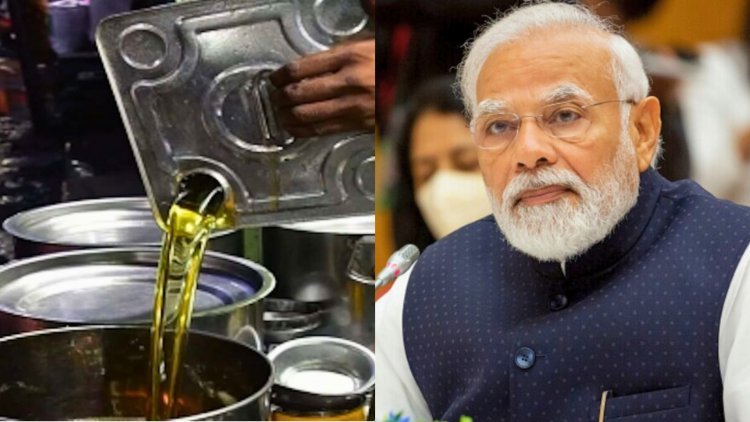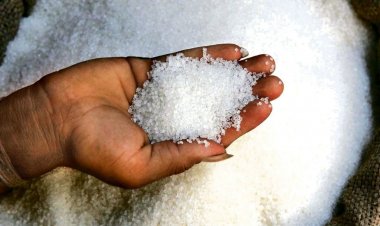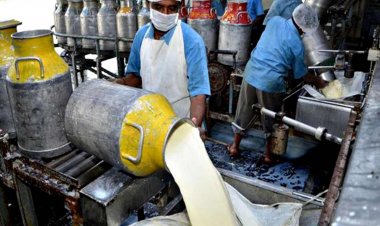Gujarat Edible Oils and Oilseed Association has demanded urgent measures to curb edible oil imports and sought some sops and relief to the struggling domestic oil industry, like interest waiver and procurement of finished goods by various government agencies, instead of raw material procurement.
In a letter to Prime Minister Narendra Modi, the association's president Sameer Shah made a strong request to the PM to include a revival package for local edible oil industries in the BJP's election manifesto.
"Ours is an association of members who are engaged in the production of edible oils by crushing domestically produced oil seeds, mainly groundnuts and mustard seeds. We have been complaining about the excess import of edible oils for long. It is a fact that our domestic production of edible oils is not sufficient to meet our demands and we have to import edible oils from other countries.
"But what we have been representing is that our edible oil import is much higher than our actual shortfall. When you assumed the office of prime minister of our country in 2014, your government took very strict actions to curtail the import of this commodity," he said.
Shah pointed out that as a result of that the country's annual edible oil imports came down by nearly 15 lacs tons -- from around 145 to 146 lacs ton to around 131 lacs ton. But in the year 2022, the prices of edible oils rose enormously in the
international market due to the Ukraine/Russia war and some crazy steps by the Indonesian government, he said.
"As a result of this international price rise factor, the rates of edible oils saw a sharp increase in our country. Due to this sharp rise in government
relaxed the norms and laws for higher edible oils import," he said.
The price rise in the international market was a temporary phenomenon. Within the period of two to three months, the rates started coming down all over the world. But in spite of repeated representations by various domestic edible oils associations, the central government did not restrict the edible oils import.
As a result of this, many refiners and almost entire trade establishments of edible oils in India suffered huge losses, he said.
Shah said rates of edible oils in the international and domestic markets came down by nearly 50 per cent from a peak of March-April 2022 to Sept-October 2023. But even then the central government continued with a high import policy.
"Hence our edible oils import continued to rise and we imported all time-high 165 lacs tons of edible oils during kharif year from November 22 to October 23. Further to protect our farmers from high production costs the Government increased the MS of domestic oilseeds sharply. That made our products (edible oils produced from domestic oil seeds) very incompetitive with cheaper imported edible oils and the majority of our members (domestic edible oil producers) have suffered huge losses in the last couple of years," he said.
Almost all connected with trade and manufacturing of edible oils in the country, starting from importers, refiners, crushing units and traders have incurred exorbitant losses in last couple of years and the entire industry is on the verge of collapsing. Some other faulty steps taken by the government has worsened the crisis.
These are the import of soyabean cake (soya meals) which has restricted the crushing of domestic oil seeds. This has resulted in very huge carry forward stocks of mustard seeds and soyabean seeds. It has hurt the domestic farmers and industry alike in a massive way.
Further for almost two years the finance ministry has stopped giving refunds of GST input credits accumulated by packing units of edible oils. It may be noted that GST on edible oils is 5 per cent and almost all packing materials, machinery, and spare parts used in the edible oil industry attract 18 per cent GST so almost all packing units of the edible oil industry have accumulated huge utilized GST input credits. This has severely reduced the working capital of this industry, he said.
"All above factors have combined effect on working of edible oils trade industry. Many such units and establishments have closed down and many others are running at half capacity. This has resulted in many workers losing their jobs. Many oil-producing farmers are not able to sell their produce resulting into huge unutilized carry forward stock of domestic oil seeds," Shah added in his letter.




 Join the RuralVoice whatsapp group
Join the RuralVoice whatsapp group







































